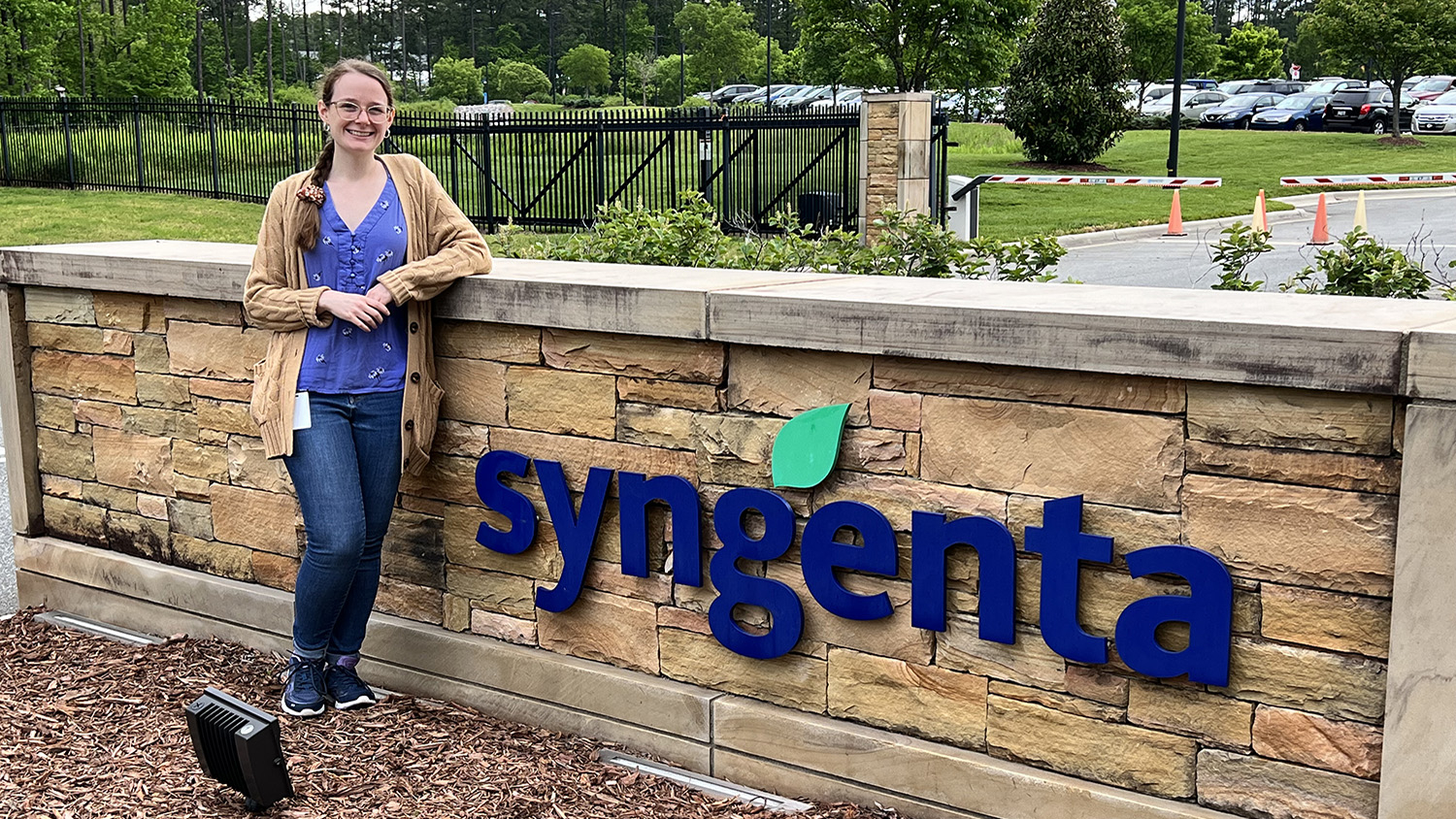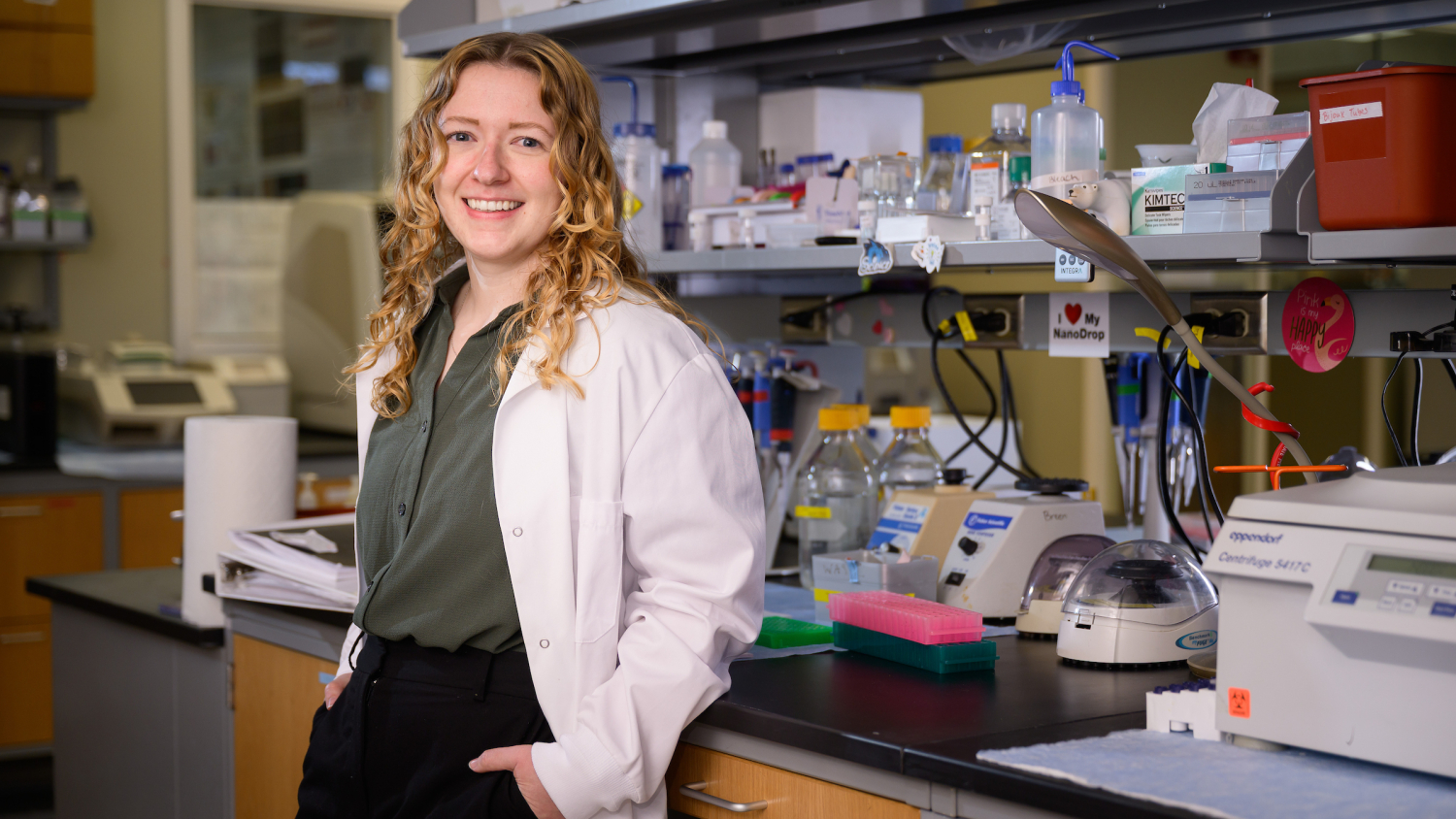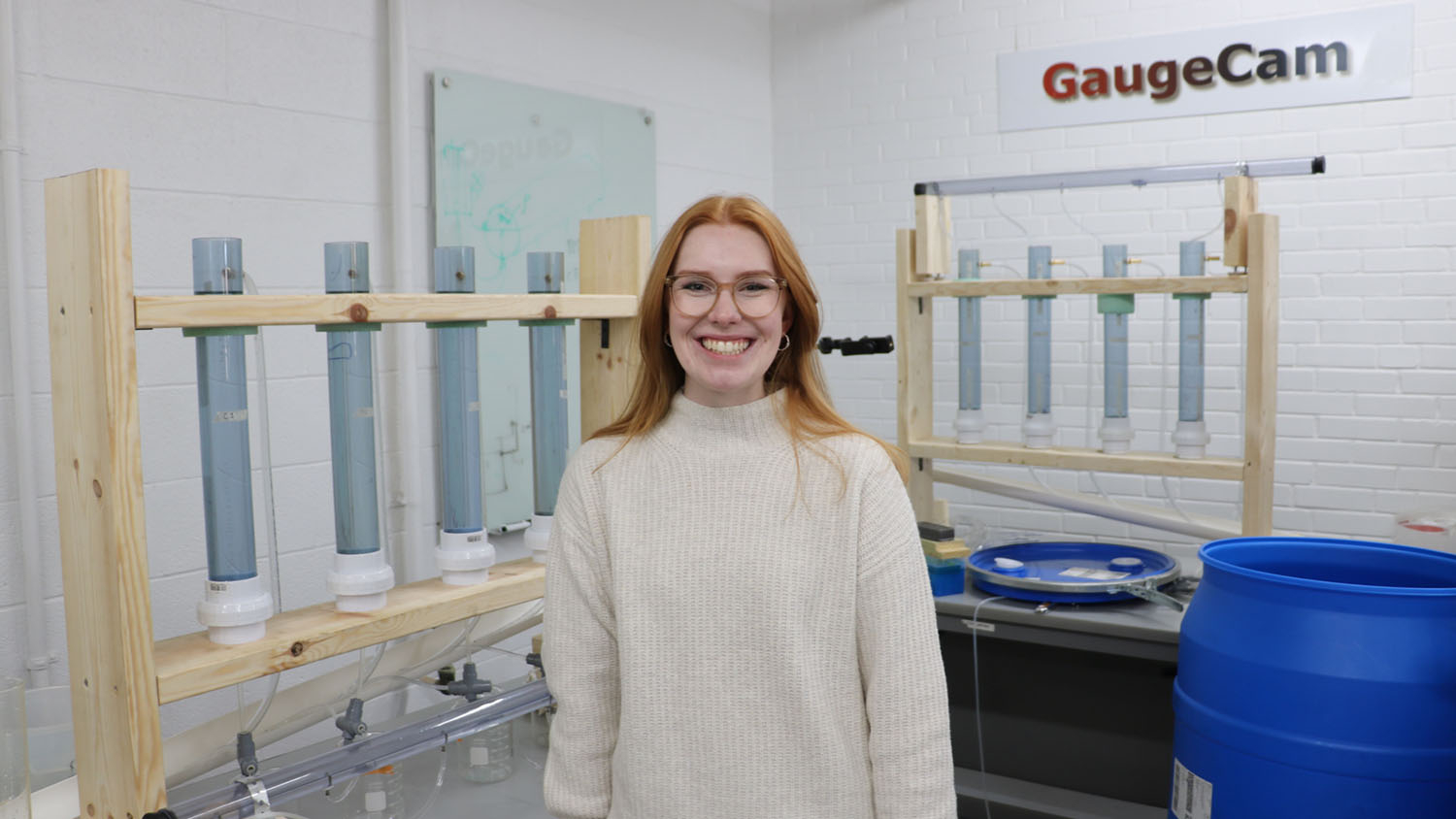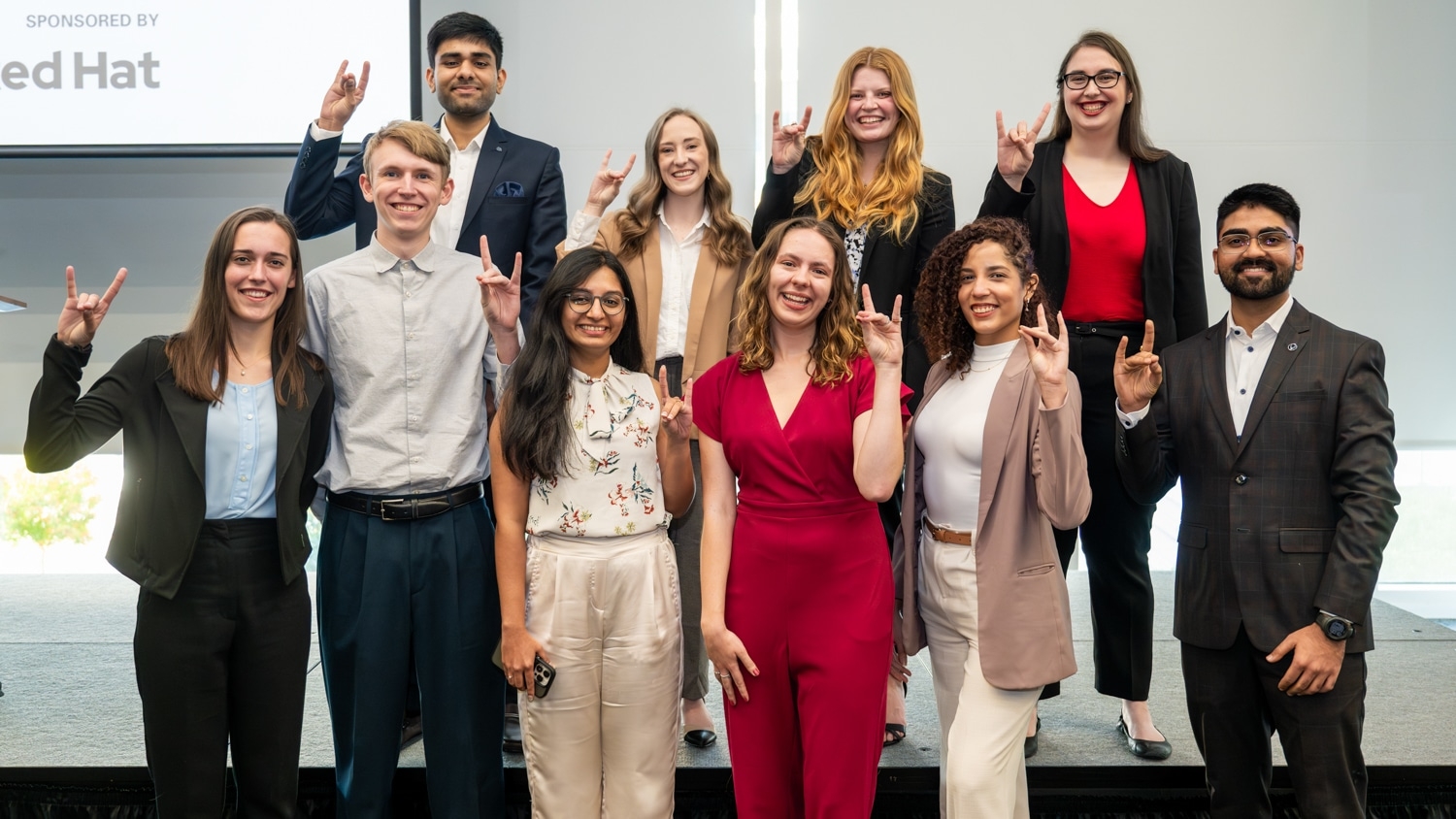By Chad Saleska
A life-long interest in plants and a desire to help growers tackle sustainability, climate change and food security issues has fueled Anne-Marie Pullen’s Ph.D. journey at NC State University.
On track for a summer 2025 graduation from the College of Agriculture and Life Sciences (CALS), Pullen is progressing toward a career in the agricultural industry, where she seeks to participate in research that pushes ideas into the marketplace that will positively impact growers. “I’m less interested in this one pathway or this one gene — it’s more in doing work that has an impact,” Pullen says. “I see a career in industry as a way to do that.”
Her idea is to participate in consumer-based solutions with the goal of improving crops to withstand abiotic stressors exacerbated by climate change.
“My interests are primarily around growers, their concerns and the issues they see with their crops,” she says. “Hopefully, we can see that someone’s yields are increasing, and they’re able to keep their crops even with extreme climate events.”
Fostering Her Love of Plants
Pullen’s general interest in plants came from gardening with her family, but it was an episode of the TV show Modern Marvels on rice that really piqued her intellectual curiosity at a young age.
The episode included a segment about the SUB1A gene in rice, which can help plants survive water submersion for long periods of time, and how it has helped farming communities in Asia that previously would have lost their year’s crop to flooding.
“I started to realize that you can use science to help people keep their crop, maintain their livelihoods, and be able to send their kids to college [as well as feed their communities],” Pullen says. “And so that was kind of my first connection that ‘Oh, I can do science, and it can have a real-world impact.’”
Research at CALS
Pullen’s doctoral research within CALS’s Department of Plant and Microbial Biology focuses on the stomata, a microscopic pore in the epidermis of plants responsible for controlling the exchange of gases between the organism and the atmosphere. Marcela Rojas-Pierce, associate department head who specializes in molecular mechanisms of plant cells, supervises the project, which has direct, real-world applications.
“When the pore is open, you have water vapor coming out, so when plants are experiencing drought stress, they’re going to close that pore,” says Pullen, who came to CALS after earning an undergraduate degree in biology from UNC-Chapel Hill.
The goal is to manipulate how that part of a plant’s anatomy interacts with its environment. The application poses interesting questions for Pullen.
“Can we make this more of an efficient response to different cues?” she ponders. “Can we make this happen faster, so [plants] lose as little water as possible?”

Real-World Applications at Syngenta
Pullen spent the summer of 2023 in Research Triangle Park (RTP) as an intern at Syngenta, an agricultural technology company. Syngenta’s mission aligned well with Pullen’s interests and provided tangible experience with industry applications.
“I’m interested in going into industry after finishing my Ph.D., and working with Syngenta definitely tied in with my career goals and how I approach my work,” she says. “Syngenta has a dedication to working with farmers to find sustainable agricultural solutions; something I think is critically important.”
At Syngenta, Pullen worked on several different projects all focused on crops, including the Hi-Edit Maize Project working to introduce traits into maize lines in fewer generations than traditional methods. Up to that point, she had mainly worked with the plant Arabidopsis, a species in the mustard and cabbage family that is typically used in labs as a model organism for experiments.
“Syngenta was a great opportunity for me to not only obtain technical experience in different crop species, but also understand how industry works and what it means to work across multiple functional groups on a project,” she says.
Aside from the hands-on learning, Pullen says it was invaluable to network with others working in her desired field and explore all the facets of the company.
“One of my favorite parts of the internship was getting to meet new people,” she says. “I had the opportunity to volunteer in different departments such as the Greenhouse and Quality Control Team as well as have one-on-one ‘coffee dates’ with established professionals to talk about career paths”.
Pullen adds, “It was a great experience and I would highly recommend other students interested in industry to seek out an internship.”

Seizing CALS Opportunities
Because of her involvement at CALS, Pullen applied for and was accepted into the 2024 Bayer Crop Science University Mentoring Program, a year-long career-development program.
“It’s helped me set aside time for my career-readiness goals,” she says. “My mentor provided some good advice about considering what work I want to do and ensuring the company aligns with my values.”
Pullen’s advice for future plant scientists and the public is to understand that the balance of safety concerns and the needs of food production are top of mind for plant scientists.
“These are not mad scientists out there wringing their hands together trying to make strange plants,” Pullen says. “It’s people really wanting to bring positive change into the world.”
This post was originally published in College of Agriculture and Life Sciences News.
- Categories:



